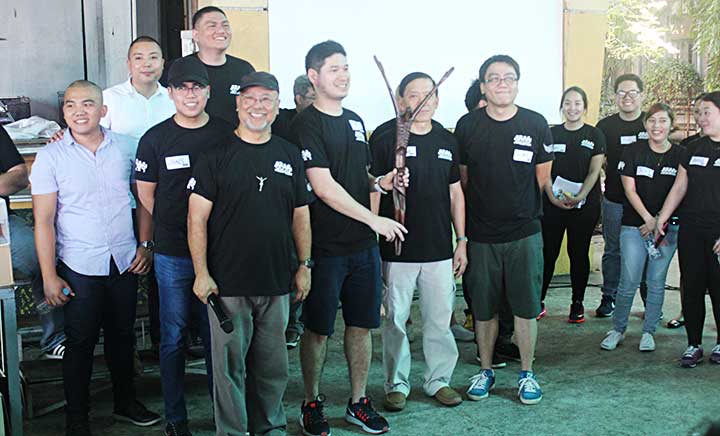PHILIPPINES: Salesian Students Begin Supervised Work Training, Gaining Skills for Future Employment

(MissionNewswire) Senior trainees at Don Bosco Technical-Vocational Education and Training Center in Tondo, a district located in Manila, the Philippines recently attended a seminar that will help them transition from students to young skilled workers and professionals. Each October, senior trainees at the program transition into the Supervised In-Plant Training program. In this stage of their education, trainees are deployed to various factories and companies according to their course work and competencies.
In preparation for this transition, the PARE Foundation and La Vie Institute in partnership with Don Bosco Center Tondo held a seminar-workshop titled Mangarap Ka (Dream). The sessions highlighted three p’s that will equip the trainees to succeed in their training and in life. These include pangarap (dream/ambition), paraan (method/know-how), and pagpaplano (planning).
The first session taught the trainees that the path toward professionalism begins with the right mindset. It helped them see the power of dreaming through creating a vision and purpose. In the second session, participants were guided through the process of making smart goals and the session provided tips on how to keep on track toward the attainment of their goals. The last session was an opportunity for the organizers and participants to express their heartfelt thanks and gratitude.
After the seminar, trainees began their hands-on training, putting the skills they learned in the classroom into real work experience. This prepares youth for the workforce and gets them accustomed to an employment environment, working with peers, program solving and honing their skills.
“Traditional classroom learning is an important part of any education program, and when students are able to take those skills and practice them in an interactive learning environment, there is added educational value,” says Father Mark Hyde, executive director of Salesian Missions, the U.S. development arm of the Salesians of Don Bosco. “Salesian missionaries are preparing students for long-term stable employment while providing a steady workforce for growing industries in the Philippines.”
More than one quarter of the population of the Philippines live in poverty, according to UNICEF. Poverty is most severe and widespread in rural areas where 80 percent of the population—close to 88 million people—make their home. The poorest Filipinos are indigenous populations, small-scale farmers who cultivate land received through agrarian reform, landless workers and fishermen. In addition, poverty rates are higher for women than men.
Access to education is a critical component to overcoming poverty. In the Philippines, drop-out rates double as children reach secondary school and there are more than 11 million out-of-school youth, according to UNICEF. Almost a quarter of the country’s population, including a large percentage of children, live in poverty.
Illiteracy and high levels of unemployment contribute to the elevated poverty rate. With more than 11 million out-of-school youth in the country and drop-out rates doubling as children reach secondary school, access to education becomes a critical step in breaking the cycle of poverty. Salesian programs in the Philippines have been educating poor youth and providing them the skills necessary to find and retain employment for many decades.
###
Sources:
PHOTO courtesy AustraLasia
UNICEF – Philippines
Salesian Missions – Philippines




